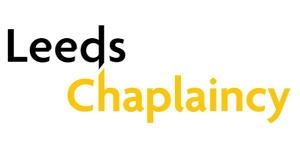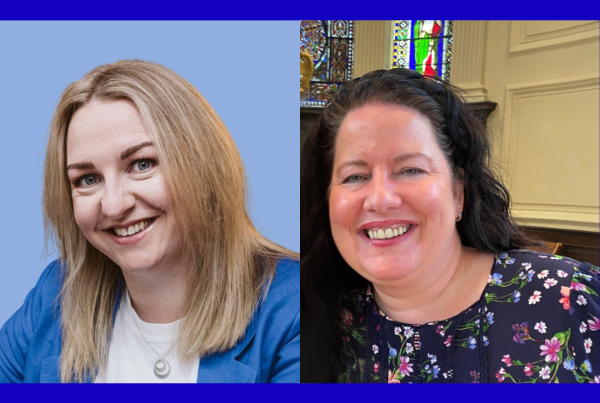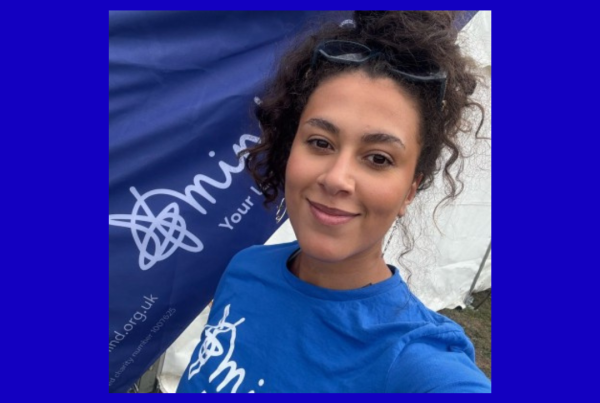Leeds Mindful Employer Network Co-ordinator, Leigh Staunton recently caught up with Rev Josh Leeds, Vicar at Holy Trinity Boar Lane, for a chat about the brand-new Leeds Chaplaincy service. He shared what chaplaincy is all about and how it can support people of all faiths and none across the city in their working lives.
First of all, please tell us a bit about you, Josh, and what it’s like to be the Vicar at Holy Trinity Boar Lane.
I’m Josh, and I’ve been the Vicar at Holy Trinity Boar Lane since January 2024. We’re a city-centre church in Leeds with a focus on creating space in the middle of the week for people who work in the city. I love the role because it combines my passion for faith with my heart for supporting people at work. From chaplaincy to services and events, to talking and praying with people. I grew up in West Yorkshire and went to Leeds College of Music. Having lived away for a long time, it’s a real joy to be back home.
Leeds Chaplaincy is a new service for people who are working in the city. Can you tell our network members what chaplaincy is?
 Chaplaincy is a way of offering confidential, non-judgemental support to people in the workplace. A chaplain is simply someone you can talk to – about work, about life, or about what’s going on personally. You’ll find chaplains in many walks of life – from hospitals and the armed forces to universities and more – and many cities across the UK also offer workplace chaplaincy. When I moved back to Leeds and realised we didn’t yet have one here, we set about connecting people to explore how we could make it happen together.
Chaplaincy is a way of offering confidential, non-judgemental support to people in the workplace. A chaplain is simply someone you can talk to – about work, about life, or about what’s going on personally. You’ll find chaplains in many walks of life – from hospitals and the armed forces to universities and more – and many cities across the UK also offer workplace chaplaincy. When I moved back to Leeds and realised we didn’t yet have one here, we set about connecting people to explore how we could make it happen together.
Why might someone benefit from chaplaincy?
We all need space to talk. Life at work can be busy and pressured, and people often feel they have to keep going without pausing. Chaplaincy gives people a safe place to step back, talk things through, and feel heard. It can make a big difference to wellbeing, resilience and, ultimately, how supported someone feels in their workplace.
Tell us a bit about your chaplains.
Our chaplains come from different faith communities across Leeds – Christian, Muslim, Jewish, Hindu, Sikh and Buddhist. They’re experienced chaplains who bring warmth, compassion and experience of supporting people in all kinds of situations. Importantly, they’re available to anyone, whether or not that person identifies with a faith.
What are the values of the Leeds Chaplaincy service and how will they be embedded into the work?
Our core values – Inclusivity, Confidentiality, Compassion, and Respect – are the foundation of everything we do. Inclusivity: We warmly welcome individuals from all walks of life, regardless of faith, belief, or background. Our service is a safe and welcoming space for everyone. Our chaplains represent a diverse range of faiths and beliefs. Leeds Chaplaincy provides support without promoting any specific religion or advocating for any particular faith. We’re here to support you, not to promote any particular belief system.
What kind of things could someone talk to a chaplain about?
Almost anything. Some people want to talk about work stresses, others about personal challenges like family, relationships or bereavement. Sometimes it’s about values, purpose, or just having a space to reflect. Chaplains don’t set the agenda – the person talking does.
How does the chaplaincy service work? How do you get started with an appointment and how long does the support last?
It’s very simple: a worker can arrange to meet a chaplain directly with us. Meetings can be in person or online, depending on what works best. The support isn’t time-limited – some people find one conversation is enough, while others want ongoing check-ins over a longer period. During the pilot, we’ve run weekly drop-ins at one workplace, at that has worked well for workers who want to pop-in for a quick conversation, and we’re able to make space for workplaces interested in a more regular presence.
How can the chaplaincy service support workplaces in the city?
For employers, chaplaincy adds to the wellbeing and support offer for staff. It shows that you value your people as whole human beings, not just employees. Chaplaincy can also give leaders insight into the pressures their staff face, while remaining fully confidential for individuals.
Any tips for how a manager could signpost someone to chaplaincy? How could they suggest it in a considerate and non-judgemental way?
The website – going live on the day of the launch event (22 October) – will be the best place to start. A great way to signpost is inviting someone from the Leeds Chaplaincy team into your workplace, which we’re really happy to do, to say a few words about the Chaplaincy service at a team gathering.
How has Leeds Chaplaincy been received so far? What are you hoping to achieve in its first year?
We’ve been piloting the service for several months and the response has been really encouraging. People have valued the chance to talk openly, and workplaces have been glad to offer this kind of support. In our first year, we want to establish chaplaincy as a trusted, accessible part of the wellbeing landscape in Leeds, and to build strong partnerships with employers who want to care for their people.
Thank you to Josh for chatting with us for this blog. You can check out the Holy Trinity Boar Lane website for more info.



